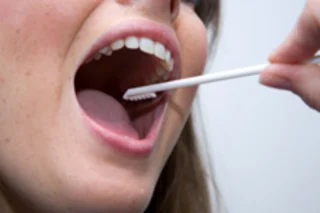If you're arrested for a felony in the state of California, expect to give up a DNA sample. As of January 1, California police departments began taking and storing genetic samples from all adults arrested for felonies, regardless of whether they go on to charge those people with crimes, or whether the suspects are ultimately convicted. Meanwhile, the FBI and 15 states now collect DNA samples from immigrants who are detained, and 16 states store genetic samples from people found guilty of misdemeanors. The intent is to create a large genetic database that will allow police to solve more crimes, but critics say the cumulative effect may be unconstitutional. Criminal
justice experts cite Fourth Amendment privacy concerns and worry that the nation is becoming a genetic surveillance society.... “What we object to — and what the Constitution prohibits — is the indiscriminate taking of DNA for things like writing an ...














